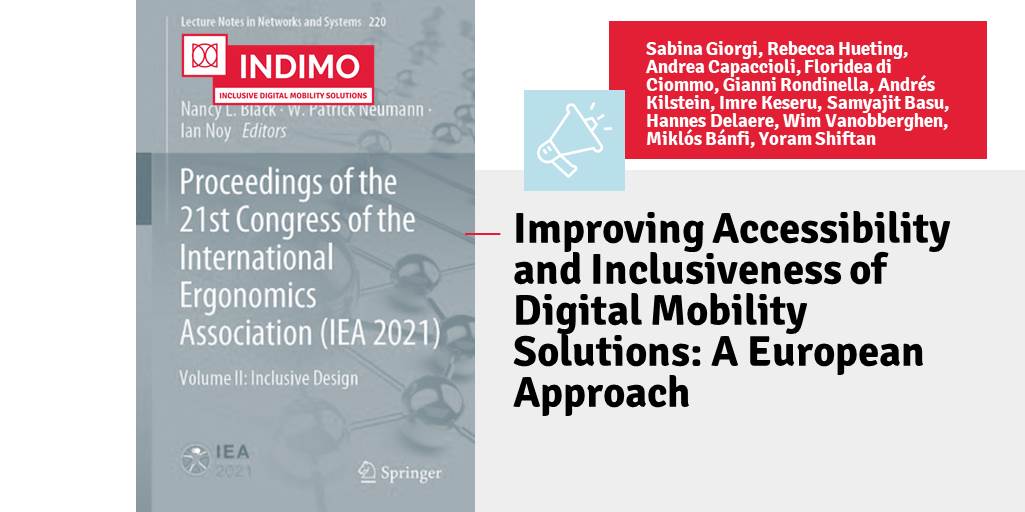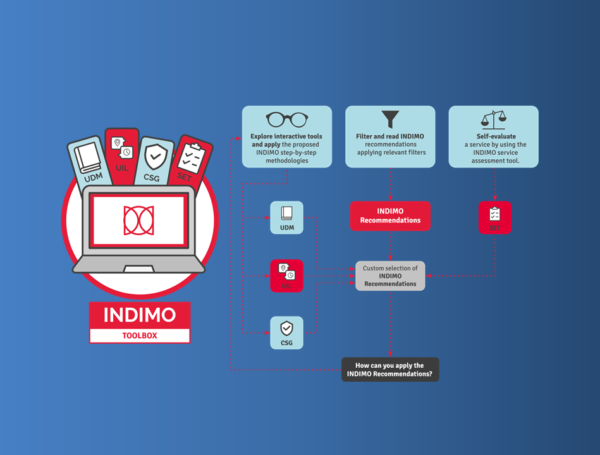by Sabina Giorgi, researcher at Deep Blue Italy
On June 17th 2021 the INDIMO research team presented a paper at the IEA 2021 conference. The paper was about “Improving inclusiveness of digital mobility solutions: a European approach“, and I was invited to introduce its content during the 21st Triennial Congress of the International Ergonomics Association. The paper presentation was included among others in the collateral session named Ergonomics in Design for All Symposium – Opportunities and Challenges of Digital Technologies for Inclusion Part 2. The INDIMO research team who authored the paper was led by the Deep Blue team – myself, Rebecca Hueting and Andrea Capaccioli – with contributions from nine Consortium members from the VUB coordination team, cambiamo|changingMobility, Imec and Technion.
The paper presents the main results of the co-creation activities carried out in the first phase of INDIMO (INclusive DIgital MObility solutions). On the one hand, results concern needs, capabilities and requirements of vulnerable to exclusion users and non-users of digital mobility and delivery services that have been collected in the five pilot sites of the project. On the other hand, findings highlight drivers and barriers for the development and deployment of inclusive and accessible digital mobility services from the viewpoint of developers, operators
and policy makers. These results are the basis for the development of the main outcome of the project, i.e. the Inclusive Digital Mobility Toolbox.
The full-text version is included in the Springer book Proceedings of the 21st Congress of the International Ergonomics Association (IEA 2021)
To download the full chapter or cite it, find it under the DOI 10.1007/978-3-030-74605-6_33




